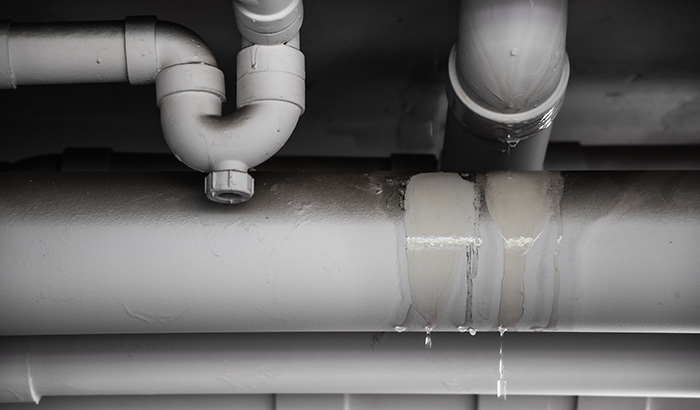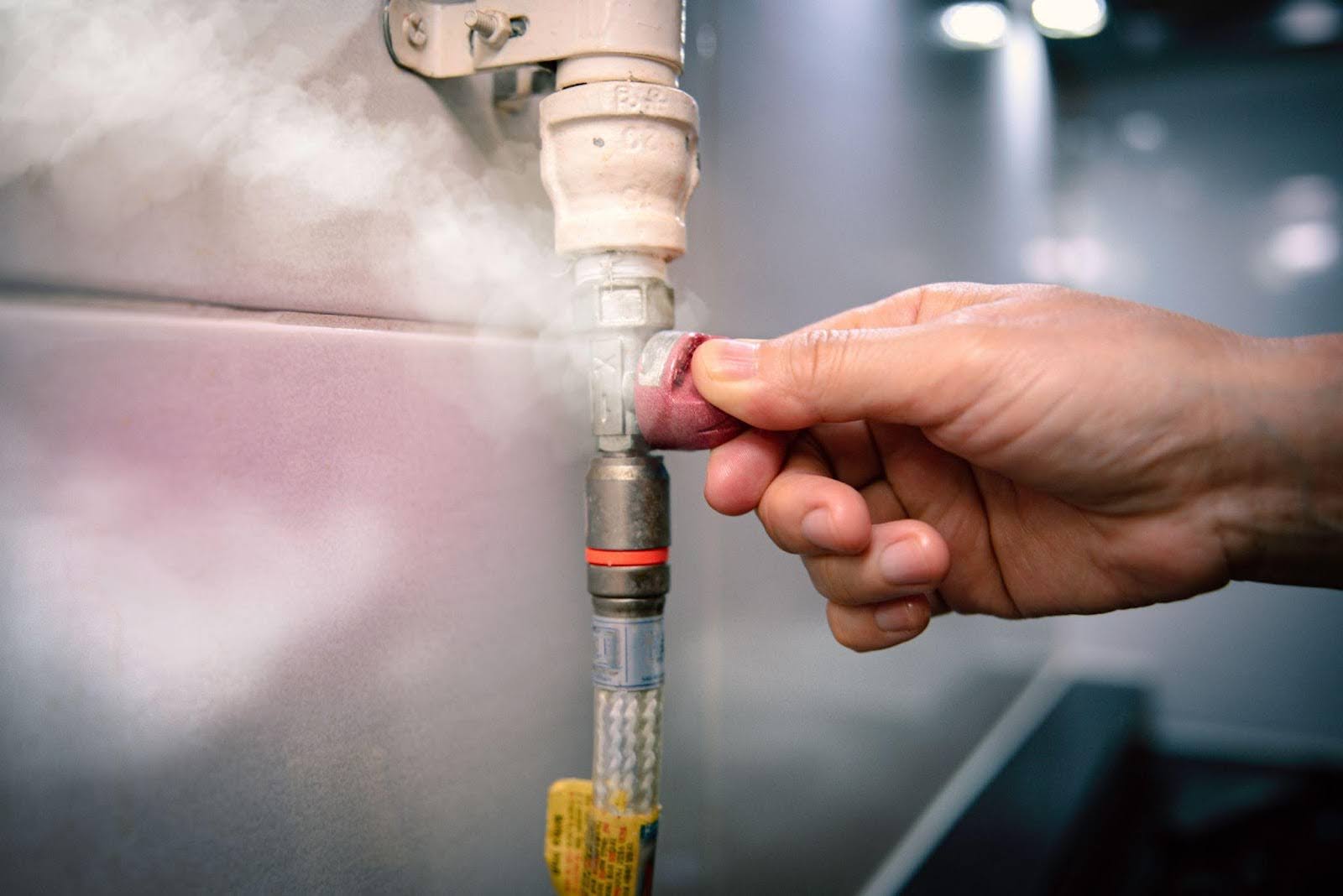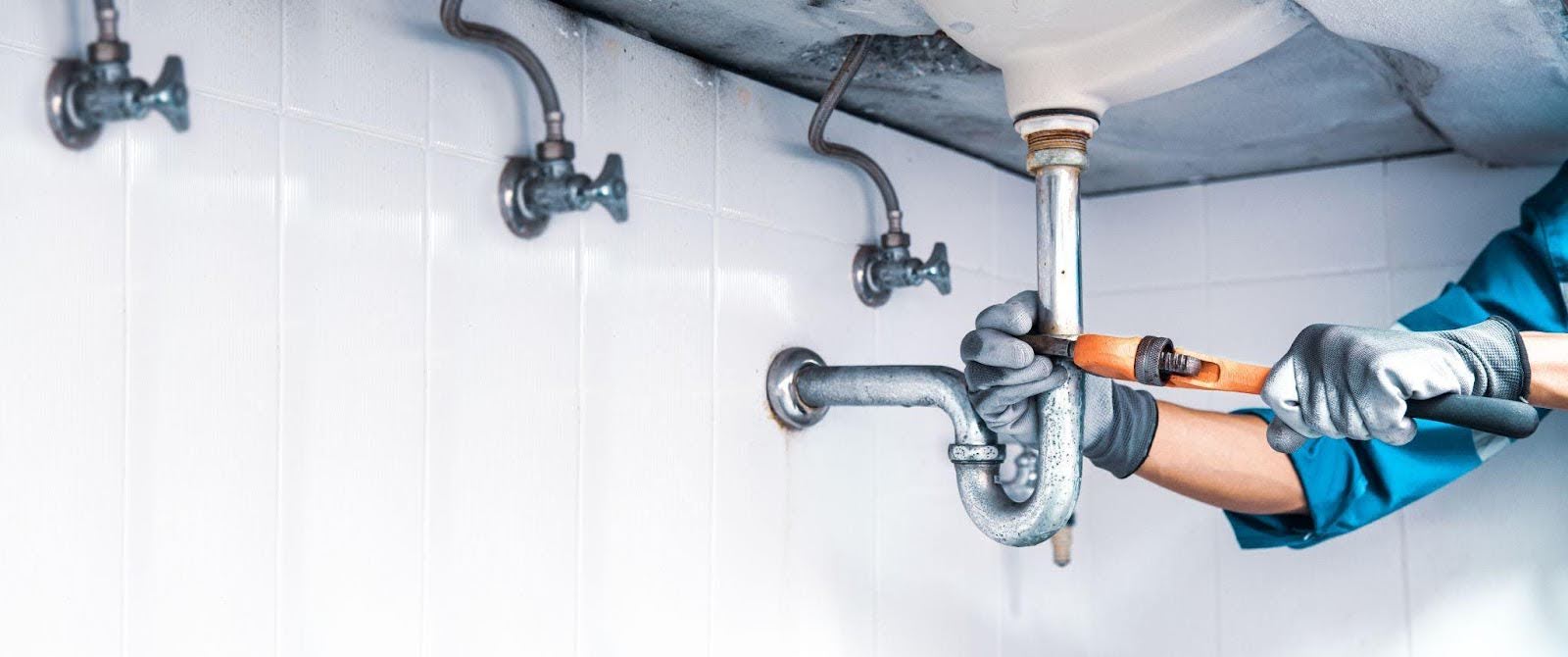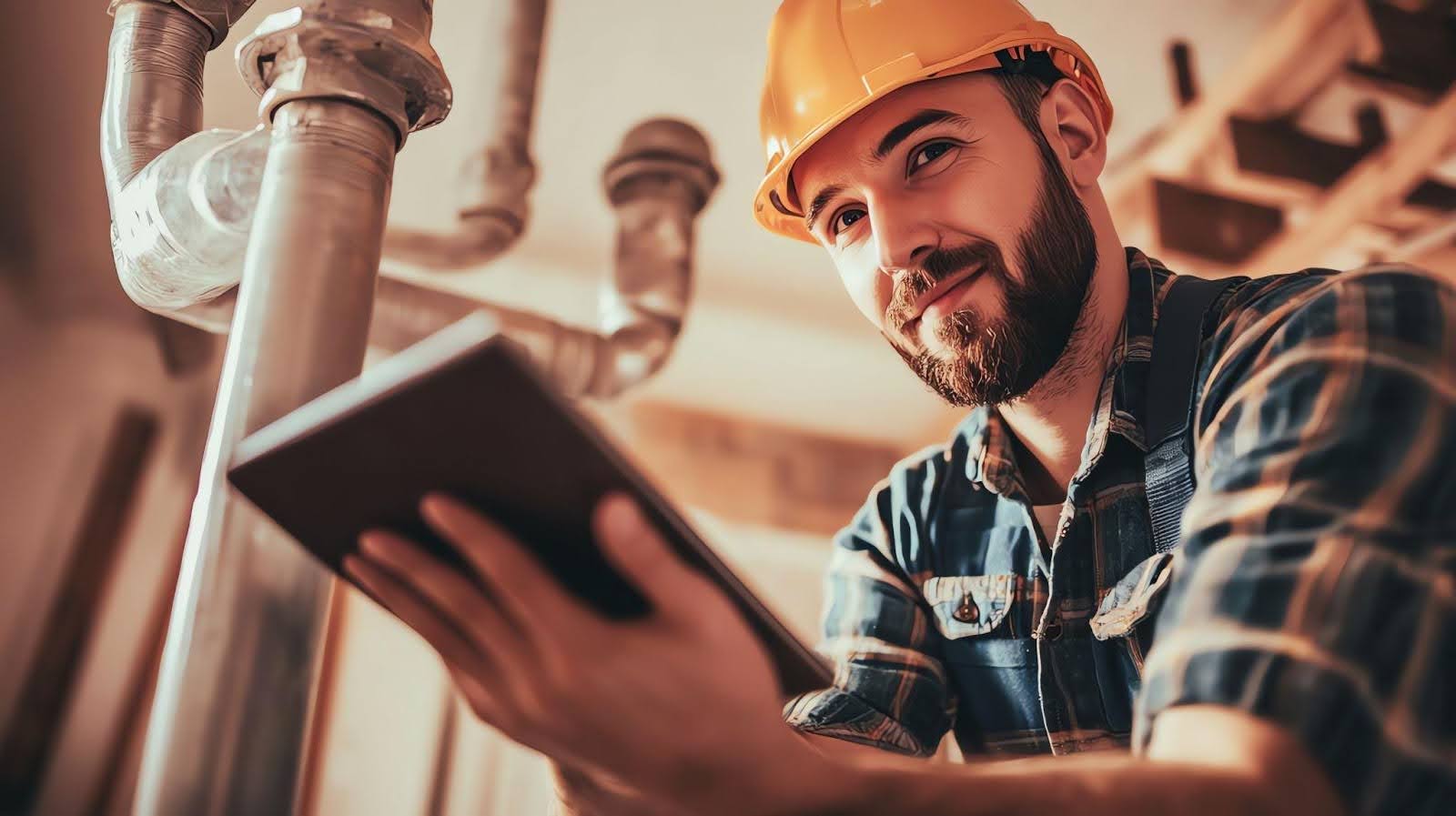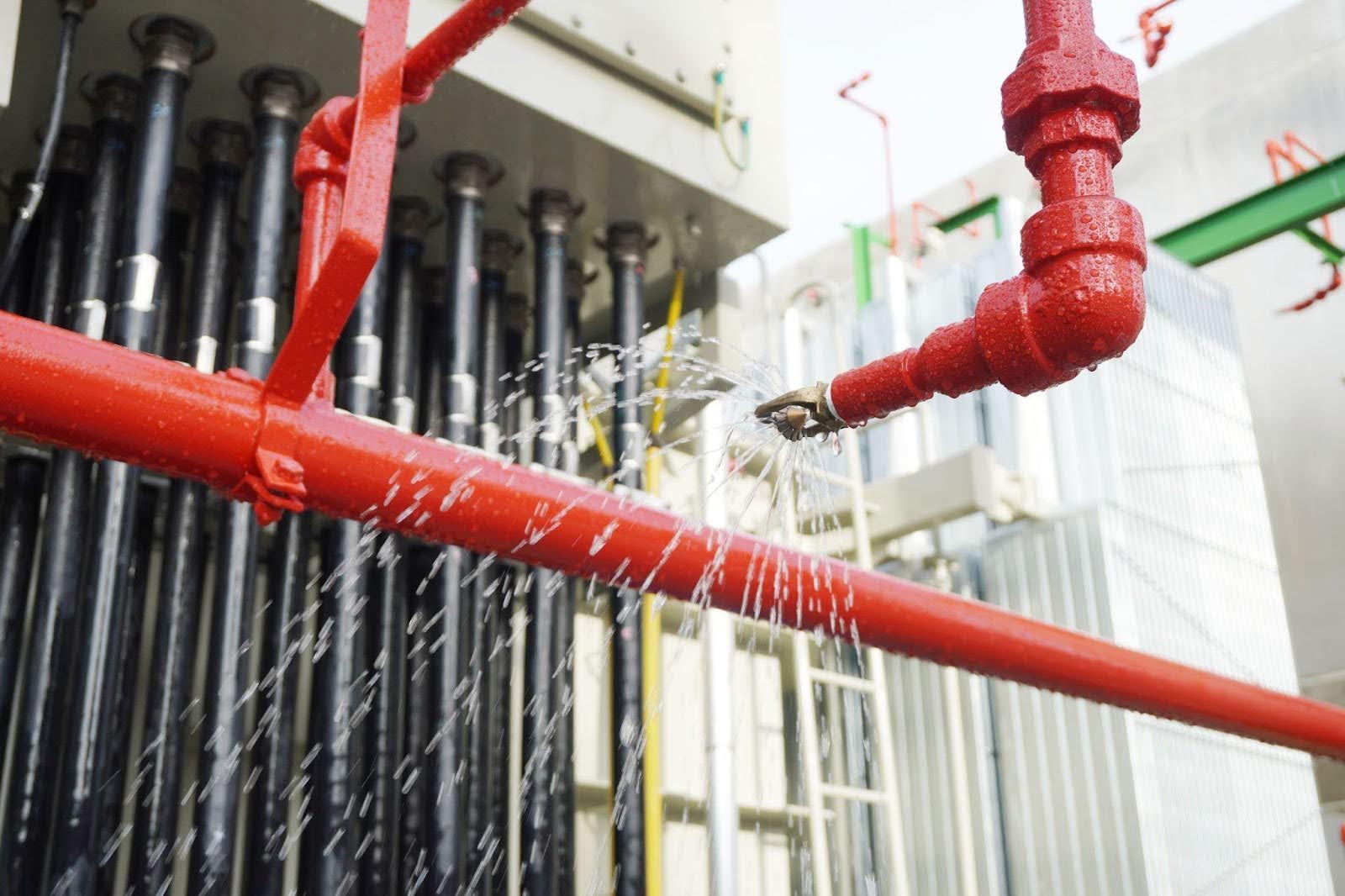Dealing with burst pipes is a homeowner’s nightmare, often leading to significant damage and disruption. Understanding what causes pipes to burst will help prevent such emergencies and manage them effectively when they do occur. This comprehensive blog delves into the common reasons behind this stressful occurrence.
Whether you’re looking to safeguard your home against future incidents or seeking knowledge to navigate a current situation, this blog is your go-to guide for understanding and addressing the complexities of burst pipes.
What is a burst pipe?
A burst pipe happens when a pipe carrying water develops a break or rupture, causing water to spill into the surrounding area and cause water damage. This can occur in any pipe within the plumbing system, whether it’s part of the water supply or drainage system.
The term “burst” implies a sudden, significant failure of the pipe’s integrity, leading to an immediate and often substantial release of water. Unlike slow leaks, which might be small cracks or holes, a burst pipe typically results in a more pronounced opening, causing a rapid, potentially damaging outflow of water.
The consequence of a burst pipe is sometimes serious. It could damage your home, affect structural elements, electrical systems, and furnishings, disrupt your water supply, or cause safety hazards.
Common causes of burst pipes
Of course, no one wants a burst pipe. But what causes burst pipes in the first place?
Freezing temperatures
When the water inside pipes freezes, it expands. This expansion increases the internal pressure within the pipe. If the pressure becomes too great, it will cause the pipe to burst. This is particularly common in pipes that are improperly insulated and exposed to freezing temperatures.
Corrosion
Over time, steel or copper pipes may corrode. Corrosion weakens the pipe’s structural integrity, making it more susceptible to bursting. Factors like the pH of the water, the presence of minerals, and the age of the pipes might accelerate this process.
High water pressure
Pipes are designed to handle a certain level of water pressure. Excessively high water pressure stresses the pipes, leading to wear and tear and eventual bursting. Sudden or irregular pressure changes are particularly damaging.
Clogs and blockages
Severe blockages in pipes can lead to an accumulation of pressure. If the blockage prevents water from flowing freely, the continuous pressure buildup might cause the pipe to burst. Common causes of blockages include accumulated debris, grease, or tree roots in sewer lines.
Aging and wear
Over time, pipes naturally degrade and lose their strength. Aging pipes may become brittle or weak, leading to cracks and bursts. Older plumbing systems, especially those that haven’t been regularly maintained, are more prone to this issue.
External damage
External sources damaging pipes can lead to bursts. This damage could be from construction work, accidental impacts during renovations, or environmental factors like shifting soil or tree root growth for underground pipes.
Tips for preventing burst pipes
Of course, knowing the dangers of burst pipes will make you want to take preventative measures against them. The last thing anyone wants is a burst pipe damaging their home. Here are some preventive measures to take:
Insulate pipes: Properly insulate pipes, especially those in unheated areas like basements, attics, garages, and exterior walls. Pipe insulation helps prevent freezing during cold weather, which is one of the primary causes of pipe bursts.
Keep the heat on: During cold spells, keep your heating on to maintain a consistent temperature in your home. This is especially important if you’re away for an extended period. Keeping the temperature at at least 55°F (about 13°C) helps prevent pipes from freezing.
Seal cracks and openings: Check for and seal any cracks or openings around your home’s foundation or where pipes enter and exit your home. This step prevents cold air from reaching the pipes.
Let faucets drip: In very cold weather, allow a trickle of water to drip from faucets connected to pipes that run through unheated or vulnerable spaces. The flowing water helps prevent freezing.
Drain outdoor pipes: Before winter, drain water from outdoor pipes, sprinkler systems, and hoses. Shut off the external water supply, as these lines are susceptible to freezing and bursting.
Regular maintenance: Regularly inspect your plumbing system for signs of wear, corrosion, and leaks. Early detection will prevent major bursts. It’s advisable to get a professional plumber to conduct periodic checks.
Monitor water pressure: Keep an eye on your home’s water pressure. If it’s too high, it can put unnecessary strain on your pipes. Installing a pressure regulator helps maintain a safe pressure level.
Avoid chemical drain cleaners: For clogs, avoid using chemical drain cleaners as they corrode pipes over time. Instead, use a plunger or a plumber’s snake, or call a professional.
Know Your Plumbing: Familiarize yourself with the layout of your plumbing system. Knowing where the main water shut-off valve is is crucial in stopping water flow in case of a burst pipe.
Consider Upgrading Old Pipes: If you live in an older home, consider replacing old, worn-out pipes with modern materials that are more resistant to bursting.
By following these preventative measures, you’ll significantly reduce the likelihood of burst pipes and the potential damage and inconvenience they cause.
What to do when a pipe bursts
If you encounter a burst pipe in your home, acting quickly to minimize water damage and potential safety hazards is important. Here’s what you should do:
Turn off the water supply: This is typically located near the water meter or where the main service pipe enters your home. Turning off the water will stop the flow and prevent further flooding.
Turn off the electricity: If the water from the burst pipe is near any electrical outlets or appliances, turn off the electricity at the main breaker. This prevents electrical hazards.
Drain the faucets: After the main water supply is shut off, open all cold water taps to drain the remaining water from the system. This helps relieve any trapped water and pressure in the pipes. Also, flush each toilet a few times.
Turn off water heating systems: If you use a boiler or have a hot water heating system, switch it off. With the main water supply off, heating systems may get damaged if they continue to run.
Call a professional plumber: Contact a professional plumber immediately. Burst pipes require professional repair. Provide as much information as possible about the situation to help them prepare for the job.
Start cleaning up: While waiting for the plumber, clean up the water to prevent further damage. Use towels, mops, and buckets to remove standing water. If it is safe to use electricity, a wet/dry vacuum is also helpful.
Document the damage: Take photos or videos of the damage caused by the burst pipe for insurance purposes. These records will be important for your insurance claim.
Ventilate the area: Open windows or use fans to circulate air and help dry out the area. This helps prevent mold growth, starting within 24-48 hours of water exposure.
Contact your insurance company: Report the incident to your home insurance company as soon as possible. Provide them with the documentation of the damage and any steps you’ve taken.
How a professional plumber helps
A professional plumber plays a crucial role in effectively handling a burst pipe. Here’s how their expertise is invaluable in such situations:
Expert assessment and repair: Upon arrival, a professional plumber will first assess the situation to determine the cause and extent of the damage. They have the expertise to quickly identify the source of the burst and the best course of action for repair. This could involve replacing a section of the pipe, fixing connections, or making other necessary adjustments.
Proper tools and equipment: Professional plumbers come equipped with the right equipment for the job. Whether cutting and replacing a section of pipe, welding, or using specialized tools to fix the problem, they have the necessary resources at their disposal.
Preventing future issues: A plumber will do more than fix the immediate problem; they’ll also assess the condition of your plumbing to identify and rectify any potential issues that could cause future bursts. This might include checking for weak spots in pipes, ensuring proper insulation, or adjusting water pressure.
Safety assurance: Handling a burst pipe is risky, especially if water has come into contact with electrical systems. Professional plumbers understand these risks and take necessary safety precautions to prevent accidents.
Quality and compliance: A professional plumber ensures that all repairs and replacements are done in compliance with local building codes and regulations. Their work is typically guaranteed, ensuring it’s done to a high standard.
Advice and recommendations: They can provide valuable advice on preventing future pipe bursts, such as insulation tips, early signs of pipe deterioration, and maintenance routines. They may also recommend upgrades or replacements if your plumbing system is outdated.
Help with insurance claims: Sometimes, a plumber’s report assists in insurance claims related to water damage. Their professional assessment is used as evidence to support your claim.
Have a burst pipe? Call Salisbury Plumbing.
Now that you know what causes pipes to burst, you can protect your home. But even with the best preventative measures, sometimes things still happen. And that’s where we come in.
If you have a burst pipe, call Salisbury Plumbing today. We are experts at everything plumbing, including burst pipes, and will repair your home from the damage so you can get back to what matters most.
Call us today at 385.438.6647, or contact us through our website to get started.


